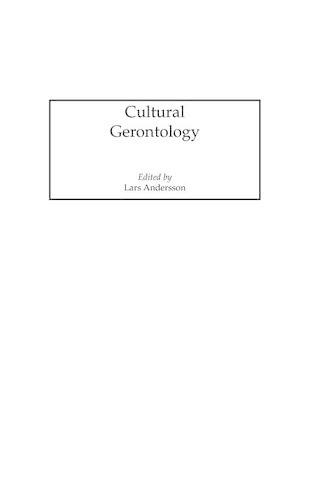
Cultural Gerontology
(Hardback)
Publishing Details
Cultural Gerontology
By (Author) Lars Andersson
Bloomsbury Publishing PLC
Praeger Publishers Inc
30th November 2002
United States
Classifications
Tertiary Education
Non Fiction
Cultural studies
305.26
Physical Properties
Hardback
240
Description
Many disparate academic, political and social issues fall under the umbrella of "cultural gerontology", and this volume brings them together and challenges mainstream gerontology. The concept of culture has gained considerable attention within the humanities and social sciences in general, and this is certainly true in the field of gerontology. In this study, chapter authors examine the growth of gerontology as a discipline, the phenomenon of ageism as a socio-cultural concept, identity politics in which older persons are perceived as belonging to a subculture, and images of the older body in cultural perspective. The manner in which gerontology emerged as a discipline was embedded in culturally defined views of ageing that had consequences for how it was seen to vary between cultures. One consequence was a perception of ageism as a cultural construction. Since the 1980s, much of the politics of older people is a form of identity politics in which groups are mobilized to further their interests. Questions of cultural meanings ascribed to the gendered ageing body is a central question of ageism, social identity, and self-image. These questions become especially relevant in confrontations with bodily decline and negotiations of intimacy in institutions for older people.
Author Bio
LARS ANDERSSON is Research Director, Stockholm Gerontology Research Center, and Associate Professor of Gerontology at the Karolinska Institute, Stockholm, Sweden.
